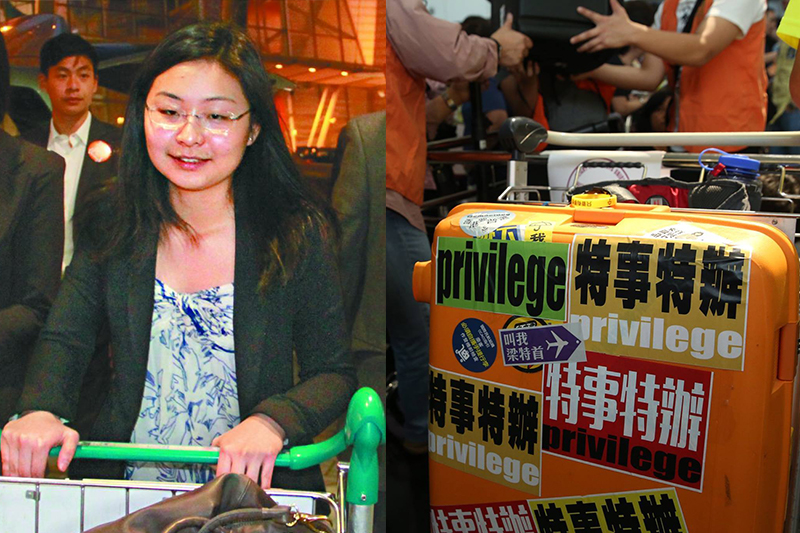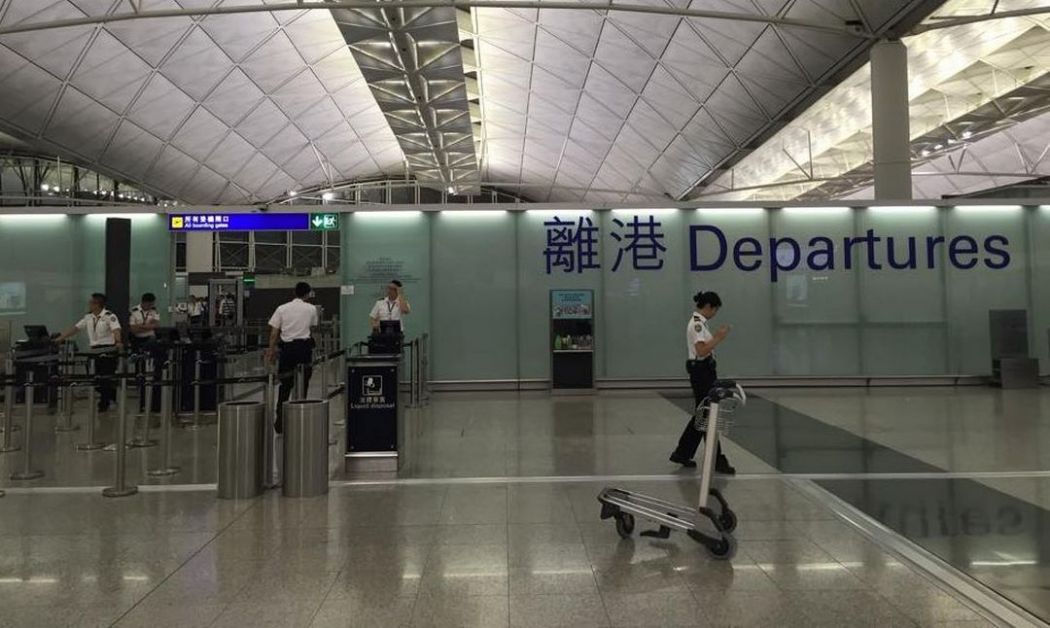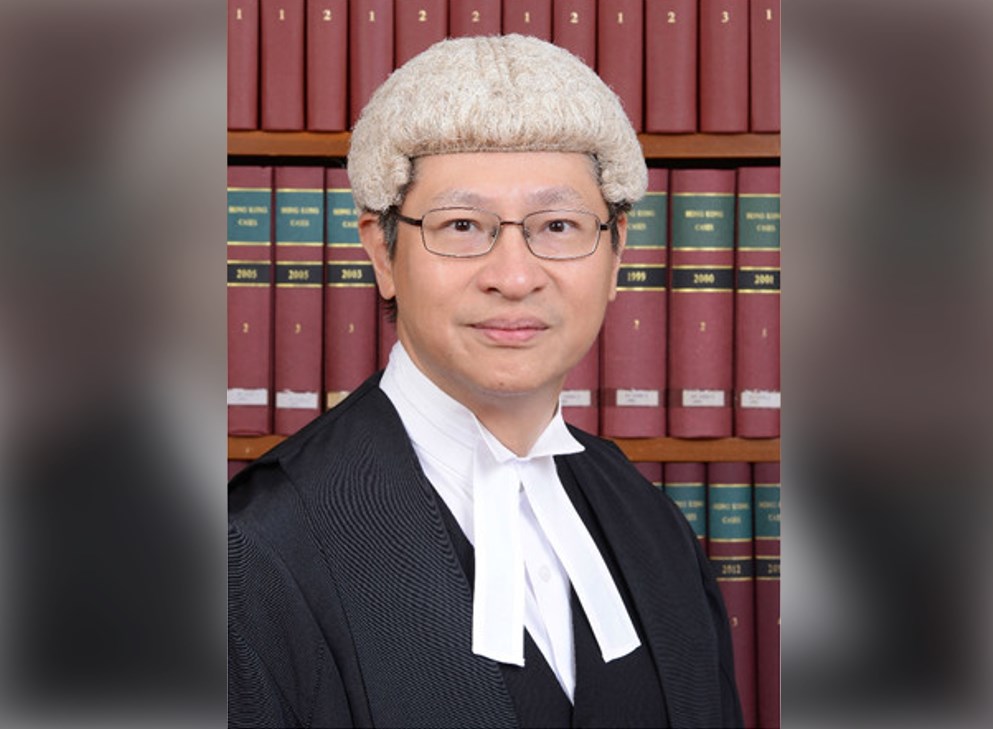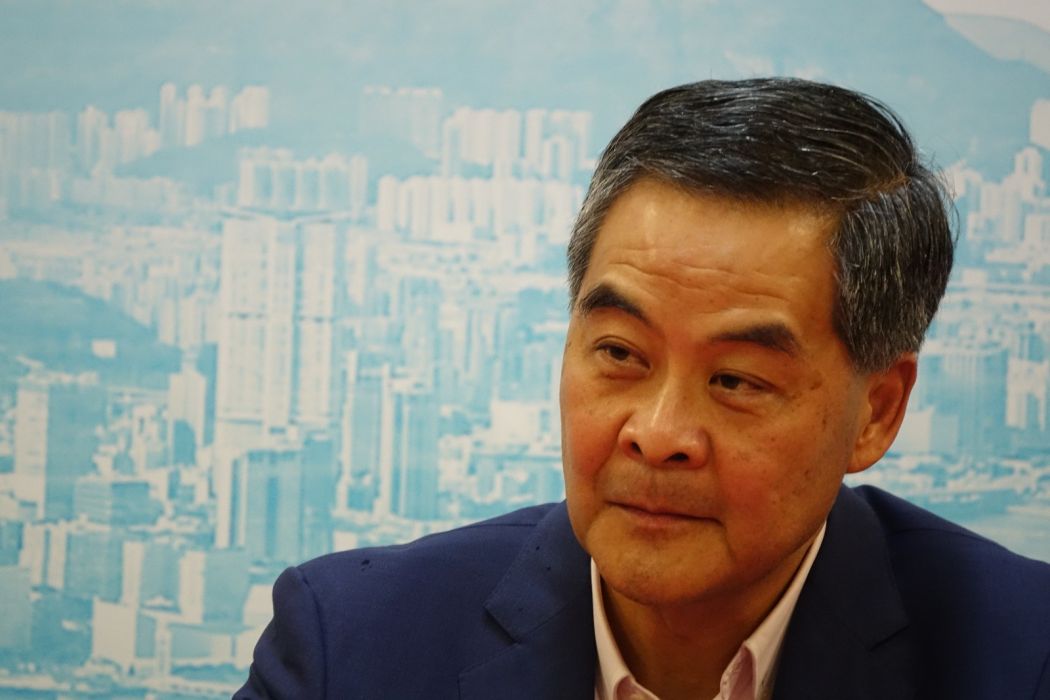The High Court ruled on Thursday that the Airport Authority and a security company acted against regulations when they retrieved forgotten baggage belonging to Leung Chung-yan, the daughter of ex-chief executive Leung Chun-ying.
In March 2016, airport personnel retrieved a bag that Leung Chung-yan had left behind while checking in at the Hong Kong International Airport. They took it from the departure area, passed it through screening, and brought it to her at the boarding gate.

Critics at the time raised security concerns and accused Leung Chun-ying of using his position as chief executive to pressure airport staff into giving special treatment. Leung has denied any wrongdoing.
The Airport Authority said in a subsequent report that the incident did not violate any local or international security standards, prompting a legal challenge from a member of the Hong Kong Cabin Crew Federation.
Judge Anderson Chow ruled on Thursday that the decisions made by the Airport Authority and the security company – Aviation Security Company Limited – were contrary to cabin baggage screening regulations, as set out in the Hong Kong Aviation Security Programme.

A clause in the Aviation Security Programme stated that “all screening of cabin baggage shall be conducted in the presence of the passenger.” Since Leung was not present when her bag was screened, the court found that the clause had been breached.
Not an academic question
When the judicial review was heard in June, it was revealed that the government had replaced the clause in question two months before the hearing.
The new clause stated that passengers only needed to be present for the “secondary screening” of cabin baggage – typically reserved for suspicious items – as opposed to the primary screening.
Lawyers for the Airport Authority said there was no point in continuing with the case, but Chow rejected the argument on Thursday.

Chow wrote that the case should not necessarily be dismissed on the grounds that an outcome would serve little purpose: “[I]t would plainly be unjust to the Applicant to dismiss her application on the sole ground that it is ‘academic’, an argument which is made possible only because the Secretary for Security has changed the relevant regulations after the event.”
The court made a declaration in favour of the judicial review applicant, and ordered the Airport Authority and the security company to pay costs.
‘Don’t give special treatment’
Carol Ng Man-yee, a spokesperson of the Hong Kong Cabin Crew Federation, said on Thursday that she was pleased and excited by the court victory.

“The court used the approach of an ordinary person to say why it is important to have passengers present during screenings,” Ng said, adding that the original rule was safer and more efficient.
Ng asked the Airport Authority to apologise to the public and revert to the earlier version of the cabin baggage screening rule.
“Everyone should follow the rules, and if anyone at the Hong Kong International Airport wants to give special treatment, I want to remind them… don’t undermine aviation safety for the benefit of those in power,” Ng said.
After the judgment was handed down, Leung Chun-ying published a Facebook post saying the incident did not constitute special treatment.

He cited a passage from the 2016 Airport Authority report, which said there were 517 cases of “courtesy delivery” between March 2015 and March 2016.
“Therefore, the airline screened the bag and delivered it to Leung Chung-yan as a customary thing to do, and not as a special privilege,” Leung wrote.
He also told an HK01 reporter that the judicial review was a “political act,” and had nothing to do with aviation safety.
